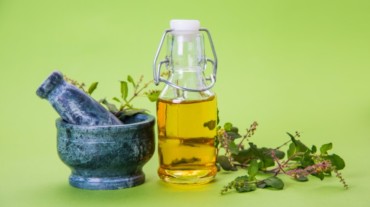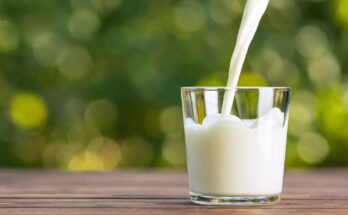Basil leaves are not just meant to enhance the flavour of foods. They can be used as a home remedy for acidity. Let us tell you about using basil leaves for acidity.
When it comes to food, I get more inclined towards taste rather than its health benefits. So, most of the time, I end up having either extra spicy food with coffee or tea, as well as a lot of fried food that may be high in fat and salt. These unhealthy food habits led to acidity, making me feel very uncomfortable. I was told to drink coconut water, eat bananas and watermelon for acidity relief. While these had a cooling effect on my stomach, my mom also told me to have basil leaves, which come from the basil plant (Ocimum basilicum). We all know it as a herb widely used in cooking for its aromatic property. Holy basil or tulsi offers health benefits, including relief from acidity, says my mom. Let us find out if using basil leaves for acidity is good or not.
How does consuming basil leaves help to get relief from acidity?
Basil leaves or Tulsi may be recommended as a treatment for conditions including diarrhea, indigestion, and gastric problems, according to a research published in the Journal of Ayurveda and Integrative Medicine in 2014.

Basil has carminative property which helps prevent gas and improve digestive juice production in the stomach. This in turn helps in balancing the stomach acids and reducing the production of further stomach acids, says Ayurvedic expert Dimple Jangda. It has a cooling property which helps reduce burning sensation in the stomach, and acidity. Tulsi or basil basically helps improve digestive health. They also have anti-ulcer properties which helps reduce incidence of ulcers with its carminative properties. Basil has anti-inflammatory properties which reduces inflammation, heat in the stomach. It soothes the stomach lining and reduces burning sensation. Basil is also a rich source of eugenol, which is an essential oil that helps neutralise stomach acids.
How to include basil in diet for acidity?
Basil is compatible to almost all food groups, including fruits, vegetables, grains and pulses.
- It can be ground into a dip or a chutney along with other condiments like cilantro or coriander, fennel seeds and some pink salt.
- You can boil basil leaves in one and a half cups of water for 5 to 10 minutes, filter and sip when it is warm.
- You can go for basil tea to help sooth the stomach lining and reduce acid production with its eugenol content.
- Add a few basil leaves in your bottle of drinking water. You can sip basil infused water, through the day every hour to hydrate yourself and neutralise stomach acids. Water itself is alkaline, and sipping water through the day helps reduce acidity level in the stomach and prevent acidity and burning sensation, says the expert. Drinking basil-infused water or tulsi water helps balance the pH level in the stomach and fight acidity.
- You can garnish your meals with basil, by adding them to your soups, steamed vegetables, pasta dishes, juices, smoothies and curries.
- You can chew on few basil leaves after meals to improve saliva production and cool your gastrointestinal tract and digestive health.
Acidity is often a symptom of high pitta imbalance, which is excessive fire in your stomach that causes burning sensation. Basil can help reduce pitta imbalance and fight acidity, says the expert. But the idea is to consume it in moderation, so have five to six basil leaves through the day to benefit from them. If you like to drink basil tea, you can consume 2 cups per day.

What are the side effects of having basil leaves?
Basil is a staple ingredient in the kitchen, and it’s both healthy and a safe ingredient for people unless you have an allergy.
- Over consumption of basil leaves can cause symptoms like blood thinning because basil is a rich source of Vitamin K which helps in clotting blood, says Jangda. High consumption of basil can interfere with blood thinning medications. In some individuals, it can even cause hypoglycemia or lower blood sugar levels.
- If you are diabetic or on blood thinning medicines, ensure to monitor your condition regularly and speak to your doctor about the right quantity of basil in your diet.
- If you are allergic to basil or any leafy green from the mint family, heed caution, as it can trigger allergic reactions like itching, swelling, or breathing difficulties.
- If you are pregnant, consume basil in moderation, as it can interfere with hormone levels in the body.
Basil has a cooling property, making it a good home remedy for acidity. But have basil leaves in moderation to avoid health problems.
Source link





